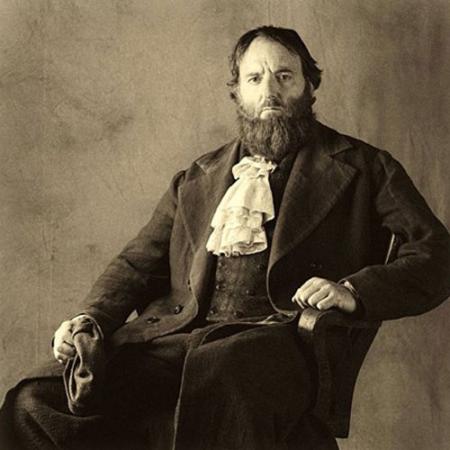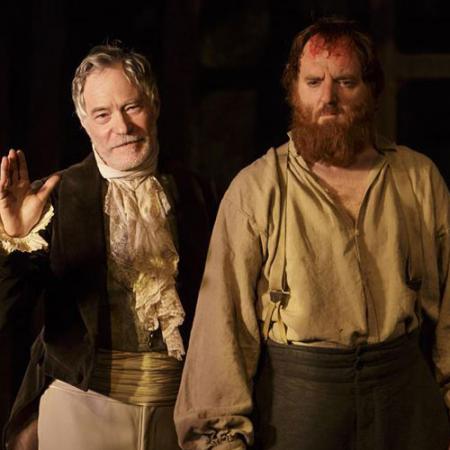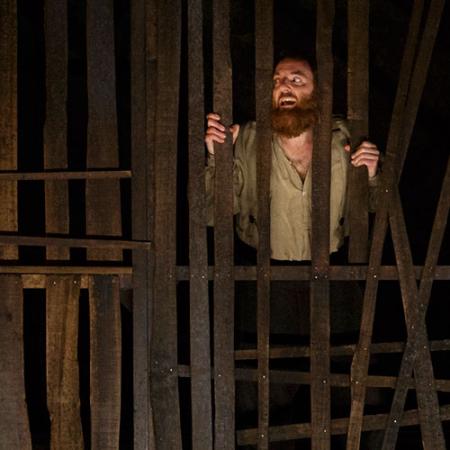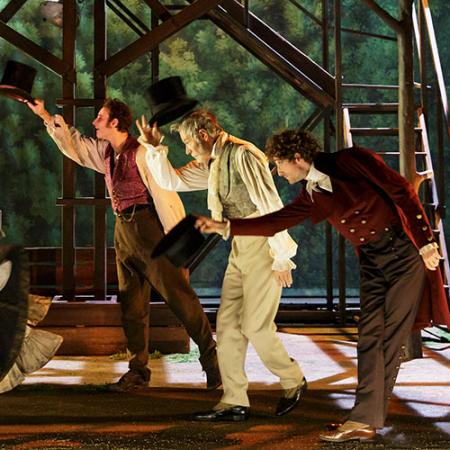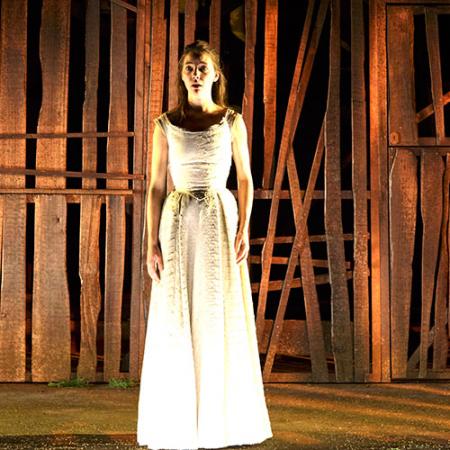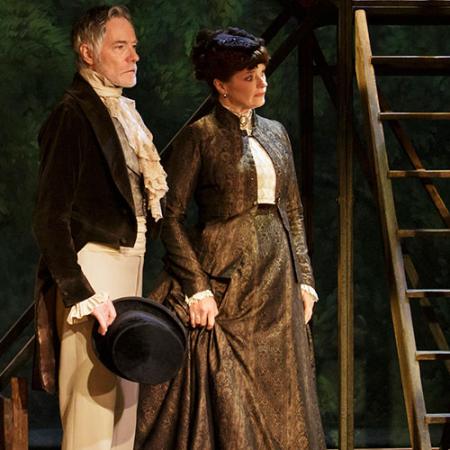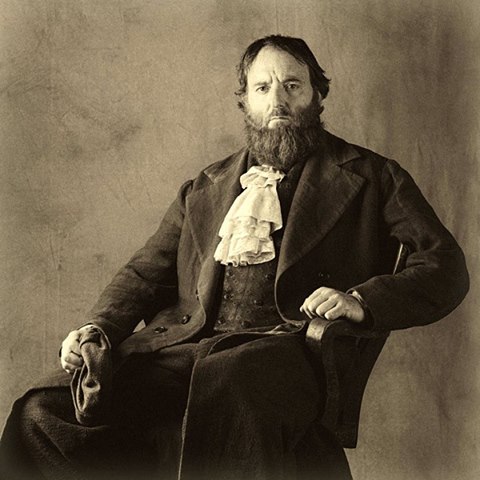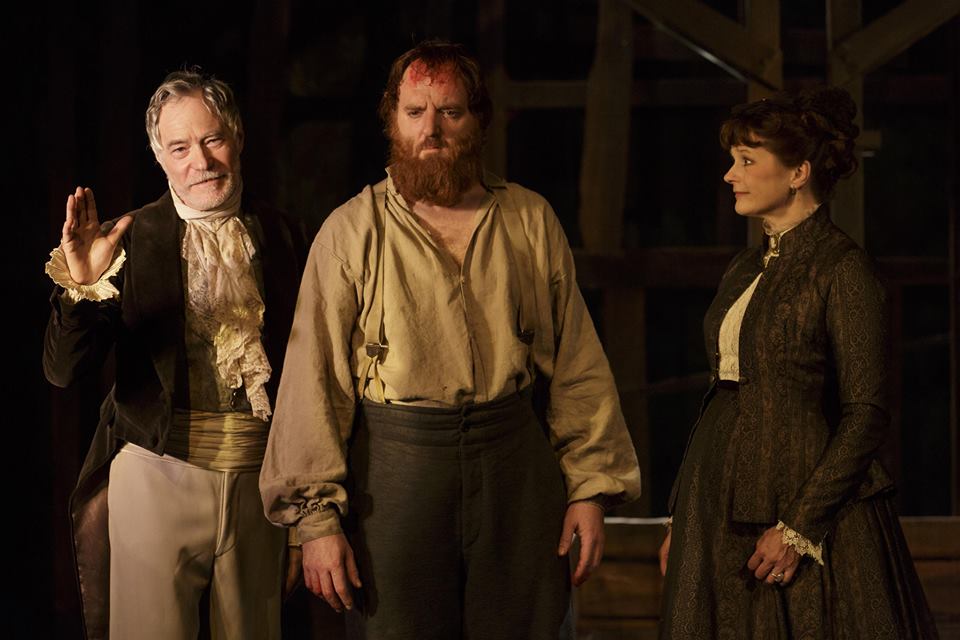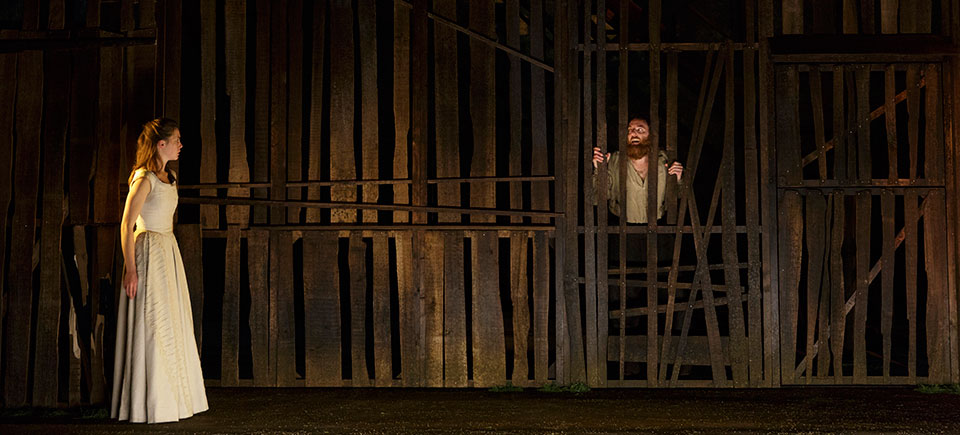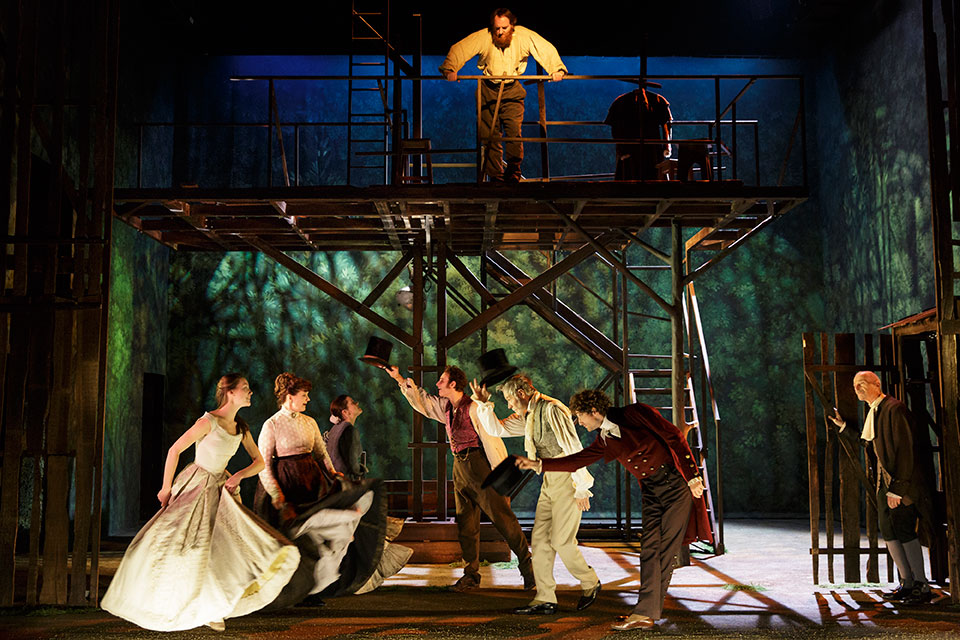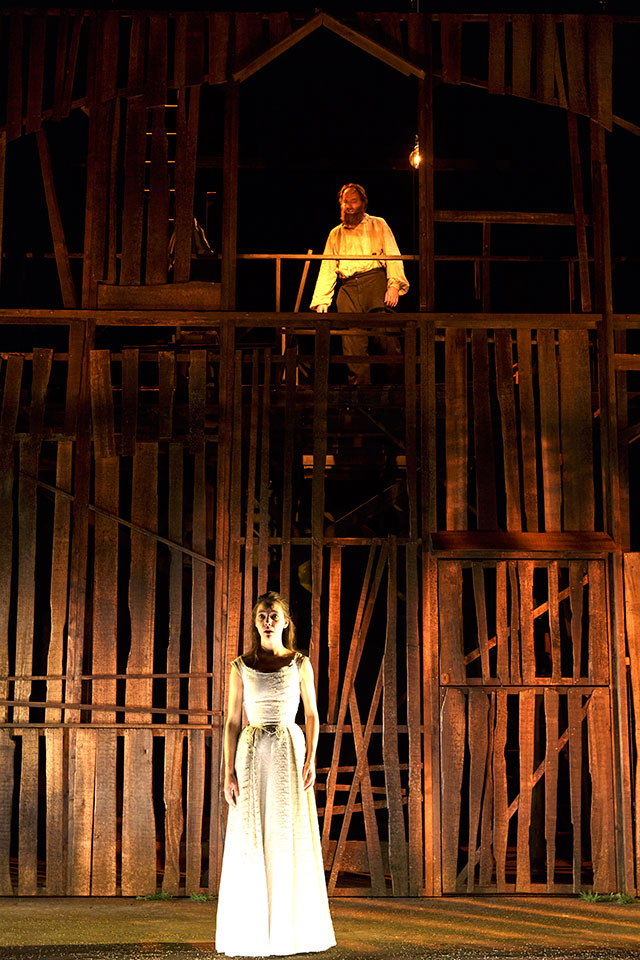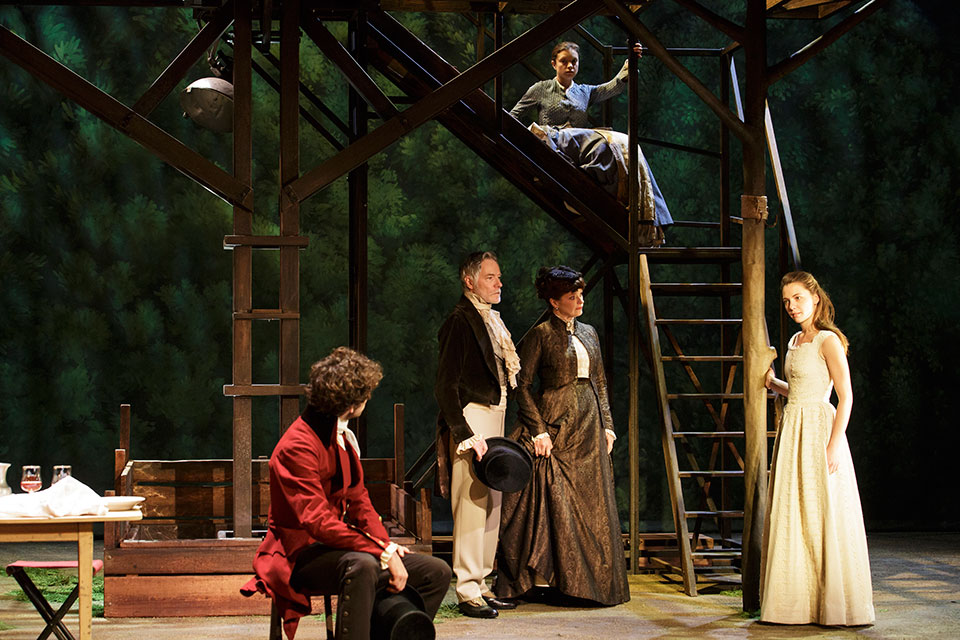George Dandin
by Molière
Directed by Hervé Pierre
Vx-Colombier
Vx-Colombier
George Dandin
2014-11-12 00:00:00 2015-01-01 00:00:00
The wealthy peasant George Dandin has married Angélique de Sotenville, the daughter of a ruined nobleman, and obtained the title of “Monsieur de la Dandinière”. But it does not take long for him to realise that his marriage is merely a fool’s bargain and that he is a thwarted husband...
Upon learning from Lubin, valet to the young nobleman Clitandre, that his wife willingly lets herself be courted by his master, Dandin attempts to expose the affair to her parents, who despise him. He then comes up against the trickery of Claudine and her mistress Angélique, who did not chose the marriage and refuses to “bury herself alive in a husband”. On three occasions, as Dandin is about to prove his wife’s loose morals, the situation turns against him. It is ridiculed and humiliated that he must himself present his apologies to those who have deceived him.
Molière, the author
Commissioned by Louis XIV, George Dandin or the Confounded Husband was premiered at Versailles on 15 July 1668, in the outdoor theatre of the Little Park, on the occasion of the Grand Royal Entertainment celebrating the Treaty of Aix-la-Chapelle. For this comedy written in prose, Molière borrowed his theme from the genre of farce-fable: “A peasant marries the daughter of a nobleman and, in the course of the comedy, is punished for his ambition”. By choosing a grotesque situation as his subject –grotesque because implausible at the time– Molière could not fail to entertain the court. Revived the same year at the Palais Royal, but without the pastoral, the play did not enjoy the same success. The absence of the “rejoicing” emphasised the tragic nature of the character, and at the same time the work lost the contrast of tones that characterised it.
Hervé Pierre, the director
A graduate of the Théâtre national de Strasbourg’s acting school, Hervé Pierre has worked with many directors, including Jean-Louis Hourdin and Bernard Sobel, Jean-Pierre Vincent, Dominica Pitoiset or Yves Beaunesne. He also pursued an interest in directing and, among other productions, has staged Fernando Pessoa’s Le Gardeur de troupeaux and CAEIRO!, as well as Claude Mollet’s Ordinaire et Disgracié. He entered the Comédie-Française in 2007 and was named sociétaire in 2011, he played in Hamlet, Peer Gynt, Fly in the Ointment and La Grande Magie. For this George Dandin, Hervé Pierre wishes to restore a sense of entertainment by combining music and dance, to reveal the great humanity of the characters of this farce with a strong social dimension. His staging, performed by three generations of actors, celebrates a new world being propelled by the enthusiasm of youth.
Creative team
Mise en scène : Hervé Pierre
Collaboration artistique : Laurence Kélépikis
Scénographie et costumes : Éric Ruf
Assistante à la scénographie : Dominique Schmitt
Assistant aux costumes : Siegrid Petit-Imbert
Lumières : Christian Dubet
Musique originale : Vincent Leterme
Travail chorégraphique : Cécile Bon
Distribution
the company
-
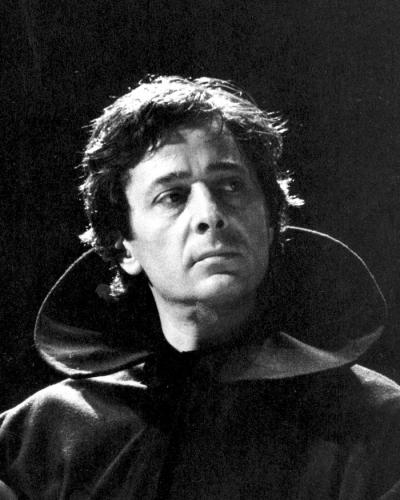
-
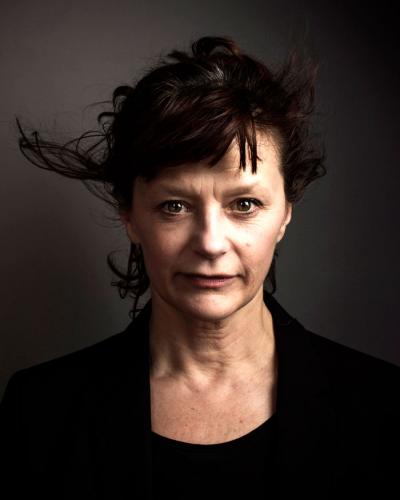
-

-

Jérôme
PoulyGeorge Dandin
-

Pierre
HancisseClitandre
-
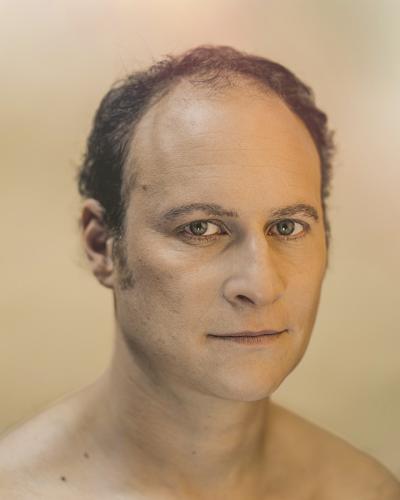
-

-
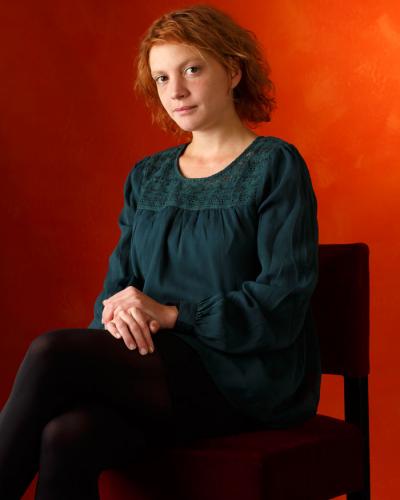
Pauline
MéreuzeClaudine

